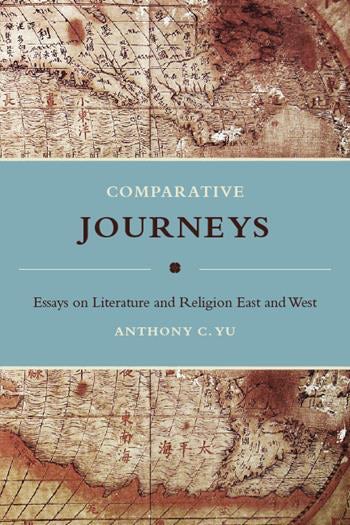Throughout his academic career, Anthony C. Yu has employed a comparative approach to literary analysis that pays careful attention to the religious and philosophical elements of Chinese and Western texts. His mastery of both canons remains unmatched in the field, and his immense knowledge of the contexts that gave rise to each tradition supplies the foundations for ideal comparative scholarship.
In these essays, Yu explores the overlap between literature and religion in Chinese and Western literature. He opens with a principal method for relating texts to religion and follows with several essays that apply this approach to single texts in discrete traditions: the Greek religion in Prometheus; Christian theology in Milton; ancient Chinese philosophical thought in Laozi; and Chinese religious syncretism in The Journey to the West.
Yu's essays juxtapose Chinese and Western textsCratylus next to Xunzi, for exampleand discuss their relationship to language and subjects, such as liberal Greek education against general education in China. He compares a specific Western text and religion to a specific Chinese text and religion. He considers the Divina Commedia in the context of Catholic theology alongside The Journey to the West as it relates to Chinese syncretism, united by the theme of pilgrimage. Yet Yu's focus isn't entirely tied to the classics. He also considers the struggle for human rights in China and how this topic relates to ancient Chinese social thought and modern notions of rights in the West.
"In virtually every high-cultural system," Yu writes, "be it the Indic, the Islamic, the Sino-Japanese, or the JudeoChristian, the literary tradition has developed in intimateindeed, often intertwining-relation to religious thought, practice, institution, and symbolism." Comparative Journeys is a major step toward unraveling this complexity, revealing through the skilled observation of texts the extraordinary intimacy between two supposedly disparate languages and cultures.
- Contents
- Preface
- Acknowledgments
- 1. Literature and Religion
- 2. New Gods and Old Order: Tragic Theology in Prometheus Bound
- 3. Life in the Garden: Freedom and the Image of God in Paradise Lost
- 4. The Order of Temptations in Paradise Regained: Implications for Christology
- 5. Problems and Prospects in Chinese-Western Literary Relations
- 6. Narrative Structure and the Problem of Chapter Nine in the Xiyouji
- 7. Two Literary Examples of Religious Pilgrimage: The Commedia and The Journey to the West
- 8. Religion and Literature in China: The "Obscure Way" of the Journey to the West
- 9. The Real Tripitaka Revisited: International Religion and National Politics
- 10. "Rest, Rest, Perturbed Spirit!": Ghosts in Traditional Chinese Prose Fiction
- 11. Cratylus and teh Xunzi on Names: For David Grene
- 12. Reading the Daodejing: Ethics and Politics of the Rhetoric
- 13. Altered Accents: A Comparitive View of LIberal Education
- 14. Readability: Religion and the Reception of Translation
- 15. Enduring Change: Confucianism and the Prospect of Human Rights
- 16. China and the Problem of Human Rights: Ancient Verities and Modern Realities
- Index

